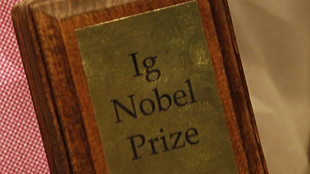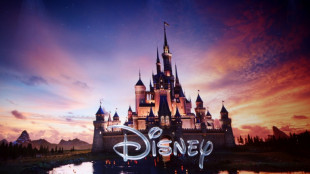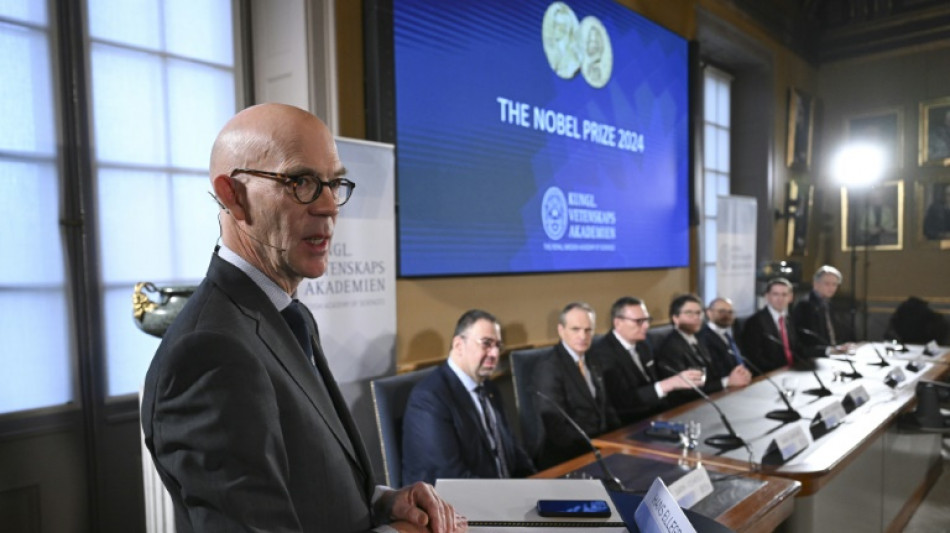
-
 'Magic' Jalibert guides Bordeaux-Begles past Scarlets
'Magic' Jalibert guides Bordeaux-Begles past Scarlets
-
Teenage pair Ndjantou and Mbaye star as PSG beat Metz to go top

-
 Anglo-French star Jane Birkin gets name on bridge over Paris canal
Anglo-French star Jane Birkin gets name on bridge over Paris canal
-
US troops in Syria killed in alleged IS ambush

-
 Jalibert masterclass guides Bordeaux-Begles past Scarlets
Jalibert masterclass guides Bordeaux-Begles past Scarlets
-
M23 marches on in east DR Congo as US vows action against Rwanda

-
 Raphinha double stretches Barca's Liga lead in Osasuna win
Raphinha double stretches Barca's Liga lead in Osasuna win
-
Terrific Terrier returns Leverkusen to fourth

-
 Colts activate 44-year-old Rivers for NFL game at Seattle
Colts activate 44-year-old Rivers for NFL game at Seattle
-
US troops in Syria killed in IS ambush attack

-
 Liverpool's Slot says 'no issue to resolve' with Salah after outburst
Liverpool's Slot says 'no issue to resolve' with Salah after outburst
-
'Stop the slaughter': French farmers block roads over cow disease cull

-
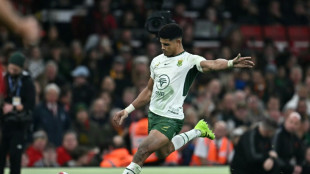 Stormers see off La Rochelle, Sale stun Clermont in Champions Cup
Stormers see off La Rochelle, Sale stun Clermont in Champions Cup
-
Maresca hails Palmer as Chelsea return to winning ways against Everton

-
 Hungarian protesters demand Orban quits over abuse cases
Hungarian protesters demand Orban quits over abuse cases
-
Belarus frees protest leader Kolesnikova, Nobel winner Bialiatski
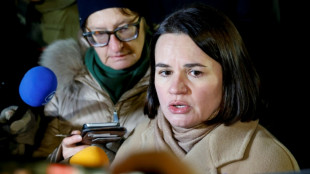
-
 Salah sets up goal on return to Liverpool action
Salah sets up goal on return to Liverpool action
-
Palmer strikes as Chelsea return to winning ways against Everton

-
 Pogacar targets Tour de France Paris-Roubaix and Milan-San Remo in 2026
Pogacar targets Tour de France Paris-Roubaix and Milan-San Remo in 2026
-
Salah back in action for Liverpool after outburst

-
 Atletico recover Liga momentum with battling win over Valencia
Atletico recover Liga momentum with battling win over Valencia
-
Meillard leads 'perfect' Swiss sweep in Val d'Isere giant slalom
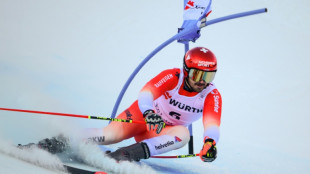
-
 Salah on Liverpool bench for Brighton match
Salah on Liverpool bench for Brighton match
-
Meillard leads Swiss sweep in Val d'Isere giant slalom
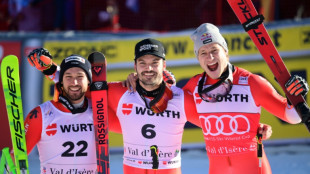
-
 Indonesia flood death toll passes 1,000 as authorities ramp up aid
Indonesia flood death toll passes 1,000 as authorities ramp up aid
-
Cambodia shuts Thailand border crossings over deadly fighting

-
 First urban cable car unveiled outside Paris
First urban cable car unveiled outside Paris
-
Vonn second behind Aicher in World Cup downhill at St Moritz

-
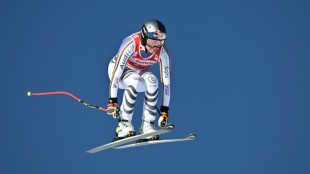 Aicher pips Vonn to downhill win at St Moritz
Aicher pips Vonn to downhill win at St Moritz
-
Thailand says 4 soldiers killed in Cambodia conflict, denies Trump truce claim

-
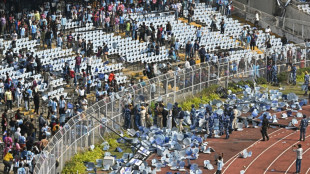 Fans vandalise India stadium after Messi's abrupt exit
Fans vandalise India stadium after Messi's abrupt exit
-
Women sommeliers are cracking male-dominated wine world open

-
 Exhibition of Franco-Chinese print master Zao Wou-Ki opens in Hong Kong
Exhibition of Franco-Chinese print master Zao Wou-Ki opens in Hong Kong
-
Myanmar junta denies killing civilians in hospital strike
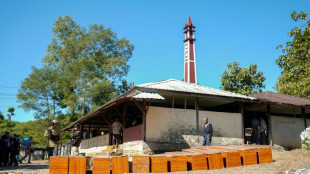
-
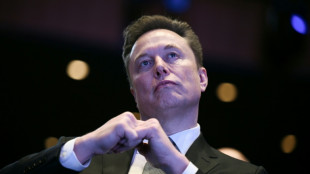 Why SpaceX IPO plan is generating so much buzz
Why SpaceX IPO plan is generating so much buzz
-
Thailand continues Cambodia strikes despite Trump truce calls

-
 US envoy to meet Zelensky, Europe leaders in Berlin this weekend
US envoy to meet Zelensky, Europe leaders in Berlin this weekend
-
North Korea acknowledges its troops cleared mines for Russia
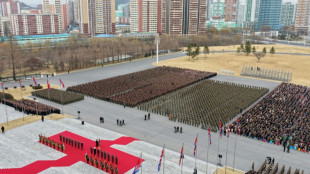
-
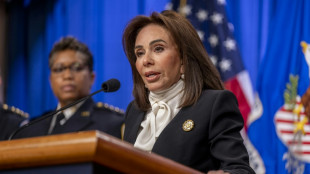 US unseals warrant for tanker seized off Venezuelan coast
US unseals warrant for tanker seized off Venezuelan coast
-
Cambodia says Thailand still bombing hours after Trump truce call

-
 Machado urges pressure so Maduro understands 'he has to go'
Machado urges pressure so Maduro understands 'he has to go'
-
Leinster stutter before beating Leicester in Champions Cup

-
 World stocks mostly slide, consolidating Fed-fuelled gains
World stocks mostly slide, consolidating Fed-fuelled gains
-
Crypto firm Tether bids for Juventus, is quickly rebuffed

-
 Union sink second-placed Leipzig to climb in Bundesliga
Union sink second-placed Leipzig to climb in Bundesliga
-
US Treasury lifts sanctions on Brazil Supreme Court justice
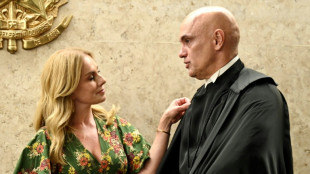
-
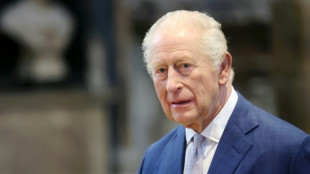 UK king shares 'good news' that cancer treatment will be reduced in 2026
UK king shares 'good news' that cancer treatment will be reduced in 2026
-
Wembanyama expected to return for Spurs in NBA Cup clash with Thunder

-
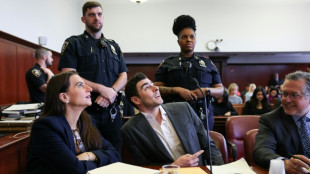 Five takeaways from Luigi Mangione evidence hearings
Five takeaways from Luigi Mangione evidence hearings
-
UK's king shares 'good news' that cancer treatment will be reduced in 2026
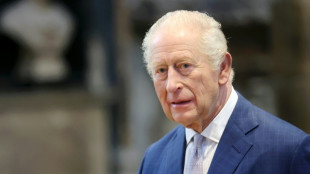

Trump jeopardising US role as scientific leader: Nobel officials
Donald Trump's assault on science could threaten the United States' position as the world's leading research nation and have knock-on effects worldwide, Nobel Prize officials in Sweden told AFP.
Since taking office in January, the US president has cut billions of dollars in funding, attacked universities' academic freedoms and overseen mass layoffs of scientists across federal agencies.
Next week, the Nobel Prizes will be announced in Stockholm and Oslo, and chances are high that researchers working in the United States will take home some of the prestigious awards.
The United States is home to more Nobel science laureates than any other country, due largely to its longstanding investment in basic science and academic freedoms.
But that could change, said Hans Ellegren, secretary general of the Royal Swedish Academy of Sciences, which awards the Nobel prizes in physics, chemistry, and economics.
"In the post-war period, the US has taken over Germany's role as the world's leading scientific nation. When they now start cutting research funding, it threatens the country's position," he told AFP.
Since January, the National Institutes of Health (NIH) have terminated 2,100 research grants totalling around $9.5 billion and $2.6 billion in contracts, according to an independent database called Grant Watch.
Affected projects include studies on gender, the health effects of global warming, Alzheimer's disease and cancer.
Efforts are under way to restore some of the funding but uncertainty looms.
Other fields in Trump's line of fire include vaccines, climate change and diversity, equity and inclusion.
Thomas Perlmann, secretary general of the committee that awards the Nobel Prize for Medicine, said it was "no coincidence that the US has by far the most Nobel laureates".
"But there is now a creeping sense of uncertainty about the US' willingness to maintain their leading position in research," he said.
Perlmann called the United States "the very engine" of scientific research worldwide.
"There would be very serious consequences for research globally if it starts to falter," he added.
"It doesn't take very many years of large cutbacks to cause irreversible harm."
- 'China on the rise' -
Trump's cuts could lead to a brain drain and ripple effects on research in other countries, Ellegren and Perlmann said.
Scientists and researchers who have already lost their jobs or funding may not return to their fields even if budgets are restored, and younger would-be scientists may decide not to pursue a career in research, they said.
"There is a risk that a whole generation of young researchers will be lost," Ellegren warned.
While Trump's policies primarily affect US research, international cooperation is already suffering as a result, he said.
The NIH finance collaborations in other countries, "and that has become more difficult under the new administration".
"Any nationalist or chauvinistically inclined regulation of academic activity hampers the global exchange of ideas and data," Ellegren stressed.
"Research is by nature global. Researchers have always exchanged knowledge and experiences."
Some countries have tried to attract US scientists, while non-American researchers may be tempted to leave the United States to pursue their work elsewhere.
A US retreat could therefore open the door for other nations to take big strides.
"Research is an important basis for innovation and entrepreneurship. That means it could become easier for other countries to compete with the US," Ellegren suggested.
"The big global trend right now is that research in China is on the rise," he said, adding: "They are investing unbelievable resources."
Perlmann said Trump ought to protect the US legacy.
"You would hope that Trump doesn't want to give a walkover to China and other countries keen to take over the leader's jersey."
If given a chance to talk directly to Trump, Ellegren said he would impress upon him that it was in America's own interest to maintain academic freedoms and scientific funding.
"I would say that... one of the reasons your country has been so successful is that researchers have been able to seek new knowledge and have good resources."
"The United States has invested a lot in research in the post-war period, both privately and federally. And that is what has helped your country build its prosperity," he said.
K.AbuTaha--SF-PST


